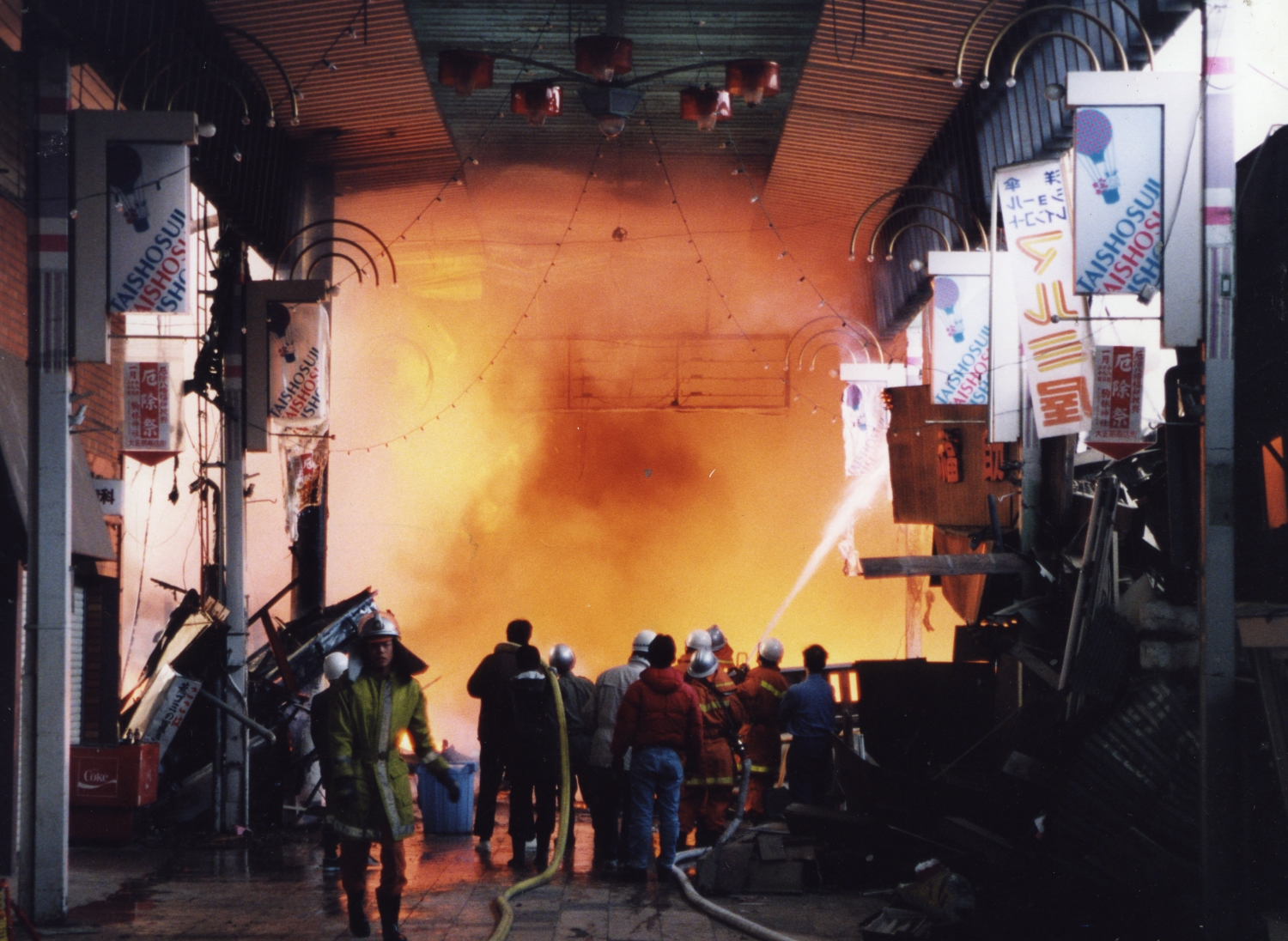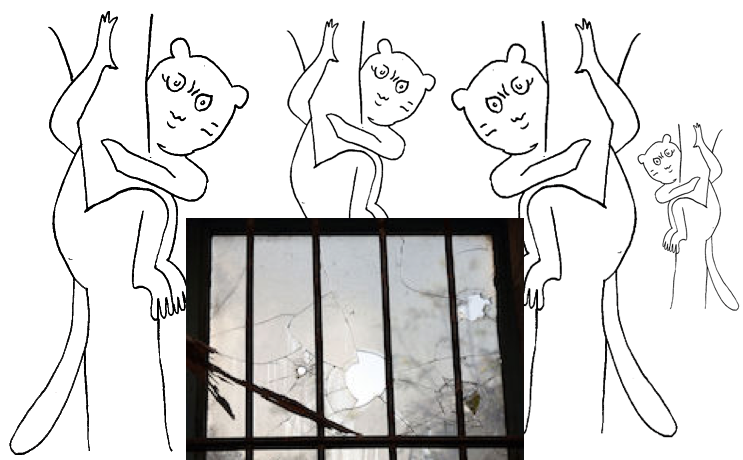The parable of the
broken window was introduced by French economist Frédéric Bastiat in
his 1850 essay "That Which Is Seen, and That Which Is Not Seen" ("Ce
qu'on voit et ce qu'on ne voit pas") to illustrate why destruction, and
the money spent to recover from destruction, is not actually a net
benefit to society.
The parable seeks to show how opportunity costs, as well as the law of
unintended consequences, affect economic activity in ways that are
unseen or ignored. The belief that destruction is good for the economy
is consequently known as the broken window fallacy or glazier's fallacy.
|
割れた窓のたとえは、フランスの経済学者フレデリック・バスティアが
1850年に発表したエッセイ「見えるもの、見えないもの」(「Ce qu'on voit et ce qu'on ne voit
pas」)で紹介したもので、破壊や破壊から回復するために費やされる資金が、実際には社会にとって正味の利益にならない理由を説明するためのものであ
る。
このたとえ話は、機会費用や意図せざる結果の法則が、目に見えない、あるいは無視される形で経済活動にどのような影響を及ぼすかを示そうとするものであ
る。破壊は経済にとって良いことであるという考え方は、結果的に割れ窓の誤謬、あるいはガラス屋の誤謬として知られている。
|
Parable
Bastiat's original parable of the broken window from "Ce qu'on voit et ce qu'on ne voit pas" (1850):
Have you ever witnessed the anger of the good shopkeeper, James
Goodfellow, when his careless son has happened to break a pane of
glass? If you have been present at such a scene, you will most
assuredly bear witness to the fact that every one of the spectators,
were there even thirty of them, by common consent apparently, offered
the unfortunate owner this invariable consolation – "It is an ill wind
that blows nobody good. Everybody must live, and what would become of
the glaziers if panes of glass were never broken?"
Now, this form of condolence contains an entire theory, which it will
be well to show up in this simple case, seeing that it is precisely the
same as that which, unhappily, regulates the greater part of our
economical institutions.
Suppose it cost six francs to repair the damage, and you say that the
accident brings six francs to the glazier's trade – that it encourages
that trade to the amount of six francs – I grant it; I have not a word
to say against it; you reason justly. The glazier comes, performs his
task, receives his six francs, rubs his hands, and, in his heart,
blesses the careless child. All this is that which is seen.
But if, on the other hand, you come to the conclusion, as is too often
the case, that it is a good thing to break windows, that it causes
money to circulate, and that the encouragement of industry in general
will be the result of it, you will oblige me to call out, "Stop there!
Your theory is confined to that which is seen; it takes no account of
that which is not seen."
It is not seen that as our shopkeeper has spent six francs upon one
thing, he cannot spend them upon another. It is not seen that if he had
not had a window to replace, he would, perhaps, have replaced his old
shoes, or added another book to his library. In short, he would have
employed his six francs in some way, which this accident has
prevented.[1]
|
たとえ話
バスティアによる「割れた窓ガラス」のたとえ話:
善良な店主であるジェームス・グッドフェローの不注意な息子がガラスを割ってしまったときの怒りを目撃したことがあるだろうか。もしあなたがそのような場
面に立ち会ったことがあるのなら、観客の誰もが(30人いたとしても)、どうやら共通の同意のもとに、不幸な店主に必ずこう慰めたという事実を、間違いな
く目撃しているはずだ。もしガラスが割れることがなかったら、ガラス職人たちはどうなっていただろう」。
さて、このような弔いの言葉には、ある理論が含まれているのだが、この単純な事例でそれを明らかにしよう。
仮に、修理に6フランかかったとしよう。その事故は、ガラス職人の商売に6フランの利益をもたらす、つまり、その商売に6フランの利益をもたらすのだ、と
あなたは言う。釉薬職人がやってきて、仕事をこなし、6フランを受け取り、手をさすり、心の中で不注意な子供を祝福する。これらはすべて目に見えるもので
ある。
しかし一方で、もしあなたが、あまりによくあるケースだが、窓ガラスを割るのは良いことだ、それによってお金が循環し、産業全般が奨励されるのだ、という
結論に達したとしたら、「そこで立ち止まりなさい!あなたの理論は目に見えるものに限定されており、目に見えないものをまったく考慮していない。
店主があるものに6フランを使ったからと言って、それを別のものに使うことはできないということがわからない。もし窓を取り替える必要がなかったら、古い
靴を取り替えたり、書斎にもう一冊本を加えたりしていたかもしれない。要するに、彼は6フランを何らかの方法で使っただろうが、この事故がそれを妨げたの
である[1]。
|
Interpretations and evidence
Bastiat's argument
Suppose it were discovered that the little boy was actually hired by
the glazier, and paid a franc for every window he broke. Suddenly the
same act would be regarded as theft: the glazier was breaking windows
to force people to hire his services. Yet the facts observed by the
onlookers remain true: the glazier benefits from the business at the
expense of the baker, the tailor, and so on.
Bastiat argues that society endorses activities that are morally
equivalent to the glazier hiring a boy to break windows for him:
Whence we arrive at this unexpected conclusion: "Society loses the
value of things which are uselessly destroyed;" and we must assent to a
maxim which will make the hair of protectionists stand on end – To
break, to spoil, to waste, is not to encourage national labour; or,
more briefly, "destruction is not profit."
What will you say, Moniteur Industriel[2] – what will you say,
disciples of good M. F. Chamans, who has calculated with so much
precision how much trade would gain by the burning of Paris, from the
number of houses it would be necessary to rebuild?[1]
Bastiat is not addressing production – he is addressing the stock of
wealth. In other words, Bastiat does not merely look at the immediate
but at the longer effects of breaking the window. Bastiat takes into
account the consequences of breaking the window for society as a whole,
rather than for just one group.[3][4]
Austrian theorists cite this fallacy, saying it is a common element of
popular thinking. The 20th century American economist Henry Hazlitt
devoted a chapter to the fallacy in his book Economics in One Lesson.[5]
Cost of disasters
The broken-window scenario is used as an analogy for destruction by
natural disasters.[6] Disasters disrupt economic activity.[7] The
economic effects of natural disasters are varied.[8]

Firefighters at work in the Taisho-suji Market in Kobe, Japan after a 1995 earthquake.
Countries are more likely to have GDP fall after a disaster if they
have more unemployment, more poverty, less effective local and national
governments and institutions, and weaker economic and diplomatic
connections. Countries are more likely to have a GDP boost and recover
quickly from a disaster if they retain a skilled workforce and the
ability to mobilize resources for reconstruction, including resources
from outside the disaster area.[9][10] On the one hand, prompt recovery
has been attributed to prompt insurance and aid payments, with the
contrast between Hurricane Andrew and Hurricane Katrina as an anecdotal
example. On the other hand, slow recovery has been blamed on predatory
behaviour, with those unharmed or less-harmed by the disaster taking
advantage of those more harmed.[8]
Areas that have had repeated disasters tend to invest more in skills
and education (possibly because this is preferred to riskier investment
in infrastructure, which might be destroyed again), and they tend to
have a higher total factor productivity (possibly also because
infrastructure destroyed in disasters is replaced with better
infrastructure, as, for instance, in the Great Fire of London). These
tendencies could in theory lead to longer-term economic benefits (which
may cause GDP growth).[8][11]
There is some evidence that geological disasters do more economic harm
than climate-related disasters, in the long term. Geological disasters,
such as landslides and earthquakes, happen with little immediate
warning and kill many people. Climate-related disasters, such as
hurricanes, are more predictable on a scale of days to hours, and kill
fewer people.[8][11] Such warning saves people, but not immovable
property.[12] This suggests that killing people does long-lasting
economic harm, while destroying capital is not as harmful to GDP growth.
"Destroy any amount of physical capital, but leave behind a critical
number of knowledgeable human beings whose brains still house the
culture and technology of a dynamic economy, and the physical capital
will tend to reemerge almost spontaneously" — George Horwich, Purdue
University[9][13]
Even in disasters with few physical injuries, a large portion of the
economic cost may be public health effects (approximately a tenth, in
the case of the summer 2007 floods in the UK). The economic costs of
disruption to children's education are significant.[14] Mental health
issues may be triggered or exacerbated by the distress suffered during
the disaster.[15] Health advice on minimizing psychosocial stress has
been given for disasters.[16] While public health costs may contribute
to economic activity and GDP growth, growth in demand for medical or
educational assistance is unlikely to be seen as beneficial.
Opportunity cost of war
See also: Military Keynesianism, Post–World War II economic expansion, and Creative destruction

Partly-cleared bomb damage in an industrial area. The roofless
buildings are houses. The corrugated metal in front of the pile of
bricks and framing timber are the remains of several air-raid shelters.
Occasionally the argument has been made that war is a benefactor to
society and that "war is good for the economy." A variant of this
argument suggests that, while war cannot be fairly called a benefactor,
it can and sometimes does confer some economic benefits.[17] However,
this belief is often given as an example of the broken window fallacy.
The money spent on the war effort (or peacetime defense spending), for
example, is money that cannot be spent on food, clothing, health care,
or other sectors of the economy. The stimulus felt in one sector of the
economy comes at a direct – but hidden – cost (via foreclosed
production possibilities) to other sectors.
Bastiat himself argued against the claim that hiring men to be soldiers
was inherently beneficial to the economy in the second chapter of That
Which is Seen, and That Which is Not Seen, "The Disbanding of Troops".
According to Hazlitt:
It is never an advantage to have one’s plants destroyed by shells or
bombs unless those plants have already become valueless or acquired a
negative value by depreciation and obsolescence. ... Plants and
equipment cannot be replaced by an individual (or a socialist
government) unless he or it has acquired or can acquire the savings,
the capital accumulation, to make the replacement. But war destroys
accumulated capital. ... Complications should not divert us from
recognizing the basic truth that the wanton destruction of anything of
real value is always a net loss, a misfortune, or a disaster, and
whatever the offsetting considerations in a particular instance, can
never be, on net balance, a boon or a blessing.[18]
|
解釈と証拠
バスティアの主張
その少年が実はガラス職人に雇われていて、窓ガラスを割るたびに1フランを支払っていたことがわかったとしよう。突然、同じ行為が窃盗とみなされることに
なる。ガラス職人は、人々に自分のサービスを雇わせるために窓ガラスを割っていたのである。しかし、野次馬が観察した事実は真実のままである。パン屋や仕
立屋などの犠牲の上に、釉薬屋が商売の利益を得ているのである。
バスティアは、社会は、ガラス職人が少年を雇って窓ガラスを割らせるのと道徳的に等しい行為を是認していると主張する:
こうして、思いがけない結論が導き出される: 「破壊すること、台無しにすること、浪費することは、国民労働を奨励することではない」、もっと簡単に言えば、「破壊は利益ではない」ということである。
Moniteur Industriel』誌[2]の諸君、パリが焼け野原になれば、再建に必要な家屋の数から、貿易がどれだけの利益を得るかを非常に正確に計算したM.F.シャマンスの弟子たちよ、諸君は何と言うだろうか[1]。
バスティアは生産を論じているのではなく、富のストックを論じているのである。言い換えれば、バスティアは単に目先のことだけを考えているのではなく、窓
を割ることによるより長期的な影響に目を向けているのである。バスティアは、窓を割ることが、ある集団だけでなく、社会全体に対してどのような結果をもた
らすかを考慮している[3][4]。
オーストリアの理論家はこの誤謬を引き合いに出し、一般的な思考に共通する要素であると述べている。20世紀のアメリカの経済学者ヘンリー・ヘイズリットは、著書『Economics in One Lesson』の中でこの誤謬について1章を割いている[5]。
災害のコスト
割れ窓のシナリオは自然災害による破壊のアナロジーとして使われる[6]。災害は経済活動を混乱させる[7]。

1995年の地震の後、神戸の大正筋市場で働く消防士たち。
失業率が高く、貧困が多く、地方政府や国の制度が効果的でなく、経済的・外交的なつながりが弱い国は、災害後にGDPが減少する可能性が高い。一方、迅速
な復興は、ハリケーン・アンドリューとハリケーン・カトリーナの対比を逸例として、迅速な保険金や援助金の支払いに起因するとされてきた。他方で、復旧の
遅れは、災害によって無傷であった者、あるいは被害の少なかった者が、被害の大きかった者を利用するという略奪的行動のせいだとされてきた[8]。
災害が繰り返された地域は、技能や教育への投資を増やす傾向があり(おそらく、再び破壊されるかもしれないインフラへのリスクの高い投資よりも、この方が
好まれるため)、また、全要素生産性が高くなる傾向がある(おそらく、ロンドンの大火のように、災害で破壊されたインフラがより良いインフラに置き換えら
れるためでもある)。こうした傾向は、理論的には、より長期的な経済的利益(GDPの成長をもたらすかもしれない)につながる可能性がある[8]
[11]。
地質災害は、長期的には、気候関連の災害よりも経済的な損害を与えるといういくつかの証拠がある。地滑りや地震のような地質災害は、ほとんど直前の警告な
しに起こり、多くの死者を出す。ハリケーンのような気候関連の災害は、数日から数時間のスケールでより予測可能であり、死者数も少ない[8][11]。こ
のような警告によって、人は救われるが、不動資産は救われない[12]。このことは、人を殺すことは長期的な経済的害をもたらすが、資本を破壊することは
GDP成長にとってそれほど有害ではないことを示唆している。
「物理的資本をいくら破壊しても、ダイナミックな経済の文化や技術をまだ脳みそに蓄えている知識豊富な人間を重要な数だけ残せば、物理的資本はほとんど自然発生的に再浮上する傾向がある」-パデュー大学のジョージ・ホーウィッチ[9][13]。
身体的被害がほとんどない災害であっても、経済的コストの大部分は公衆衛生への影響である可能性がある(2007年夏の英国の洪水の場合、およそ10分の
1)。精神衛生上の問題は、災害時に受けた苦痛が引き金となったり、悪化させたりする可能性がある[15]。公衆衛生コストは経済活動やGDPの成長に寄
与するかもしれないが、医療や教育支援に対する需要の増加は有益とは考えにくい[16]。
戦争の機会費用
以下も参照: 軍事ケインズ主義、第二次世界大戦後の経済拡大、創造的破壊

工業地帯の爆撃被害の一部。屋根のない建物は家屋。レンガと木材の山の前にある波板は、防空壕の跡である。
時折、戦争は社会に恩恵をもたらすものであり、「戦争は経済のためになる
」という主張がなされることがある。この主張の変種は、戦争は公正には恩人とは呼べないが、経済的利益をもたらすことはありうるし、時にはもたらすことも
ある、と示唆している[17]。しかし、この信念はしばしば割れ窓の誤謬の例としてあげられる。例えば、戦費(あるいは平時の国防費)は、食料、衣料、医
療、あるいは経済の他の部門に使うことができないお金である。経済のある部門を刺激することは、他の部門に直接的な(しかし隠れた)犠牲を強いることにな
る。
バスティア自身、『見えるもの、見えないもの』の第2章「軍隊の解散」で、兵士として人を雇うことが経済にとって本質的に有益であるという主張に対して反論している。
ハズリットによれば
砲弾や爆弾によって工場が破壊されることは、その工場がすでに無価値になっているか、減価償却や陳腐化によってマイナスの価値を獲得していない限り、決し
て有利ではない。...
工場や設備は、個人(あるいは社会主義政府)が、その交換のための貯蓄や資本蓄積を獲得していないか、あるいは獲得できるのでなければ、交換することはで
きない。しかし、戦争は蓄積された資本を破壊する。...
複雑であっても、実質的価値のあるものの無謀な破壊は常に正味の損失であり、不幸であり、災難であり、特定の事例において相殺する考慮事項が何であろう
と、正味のバランスでは決して恩恵や祝福にはなり得ないという基本的な真理を認識することから目をそらしてはならない[18]。
|



 ☆
☆